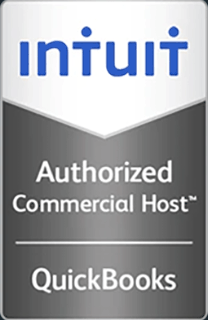Why are More Enterprise Organizations Virtualizing Mission-Critical Applications in the Public Cloud? Part Two
By Lisa Gecko
In part one of this series we examined a few of the changes in cloud computing that led to more enterprise organizations virtualizing their tier one applications. The article focused on cloud service providers (CSPs) offering enterprise-grade security hardware and software. It also touched on the new-found ease of hybrid cloud hosting management of virtual machines (VMs) with VMware vCloud Connector, and changing perceptions of risk avoidance with data consolidation in the public cloud. In this paper we will explore two obstacles that remain for some larger corporations and multinationals looking for solutions in public or hybrid cloud hosting. We will also explore what businesses should expect from today’s cloud hosting environment, and a few of the more prominent advantages of cloud computing today.
Unfortunately for some enterprise organizations there are potential obstacles for a move to public and hybrid cloud hosting. Some corporations may be heavily leveraged in infrastructure that to write off that expense seems unthinkable. The good news is, hardware becomes obsolete or at least marginally valued at an ever-increasing pace. For businesses that find themselves in this situation, a hybrid cloud solution could be the answer to start, with capital allocated for future hardware upgrades reallocated elsewhere. This would pave the way for a more aggressive approach to outsourcing virtualization down the road.
Some larger organizations and multinationals have stringent polices regarding communications and data storage. This may continue to prove to be difficult for a short period. However, with the federal government making every effort to work with non-agency CSPs via the Federal Risk and Authorization Management Program (FedRAMP), it is only a matter of time before highly regulated organizations can make the move to public cloud hosting. If security provided by upper-tier CSPs exceeds the expectations and demands of the Department of Defense, those requirements should appease many corporate governance policies in the near future.
CSPs in today’s market are offering more products than ever. In the previous article we mentioned how bookkeeping companies were taking advantage of the cloud via QuickBooks hosting which is an example of software as a service (SaaS), the basics of outsourcing to cloud hosting. Enterprise organizations are moving mission-critical applications to public and hybrid cloud hosting as well, but this is predominantly due to the recent understanding that the reward greatly outweighs the risk. Dedicated CSPs furnish the kind of infrastructure that for even the largest companies has become too much of a fiscal burden to maintain. This coupled with the ever-expanding global networking and communication requirements for almost every corporation, has made the reality of accessing outsourced cloud data from anywhere with any device, very appealing.
At this point the major advantages of cloud computing are beginning to become mainstream understanding. Scalability, mobilization, customization and a lack of capital expenditure for new infrastructure are cornerstones in the business of cloud hosting. CSPs can help streamline IT operations providing more agility, offering faster provisioning for load testing and development. CSPs are also offering new products at every turn that are appealing to businesses of all shapes and sizes.
For enterprise organizations however the advantages extend beyond these benefits. There are no more space constraint issues. The CSP provides the infrastructure which is geared towards the most demanding of possible businesses, offering enterprise-grade equipment to all clientele via multi-tenancy. Larger corporations also spend a significant amount of time and resources on maintaining data centers that can store and process enormous amounts of information. The cost and effort involved can be reallocated with cloud hosting, freeing up IT departments to work in other areas. For multinational companies the risks involved with storing data in multiple countries on thousands of machines is a substantial security issue. By centralizing the data in the cloud, it is far easier for end-user administrators to delegate how to manage security protocol.
The benefits of public and hybrid cloud computing are extensive and more visible than ever, which is certainly one of the reasons we are seeing enterprise organizations outsourcing tier one applications. Most companies large or small make decisions based on reward versus risk. With cloud hosting the former clearly now outweighs the latter.





